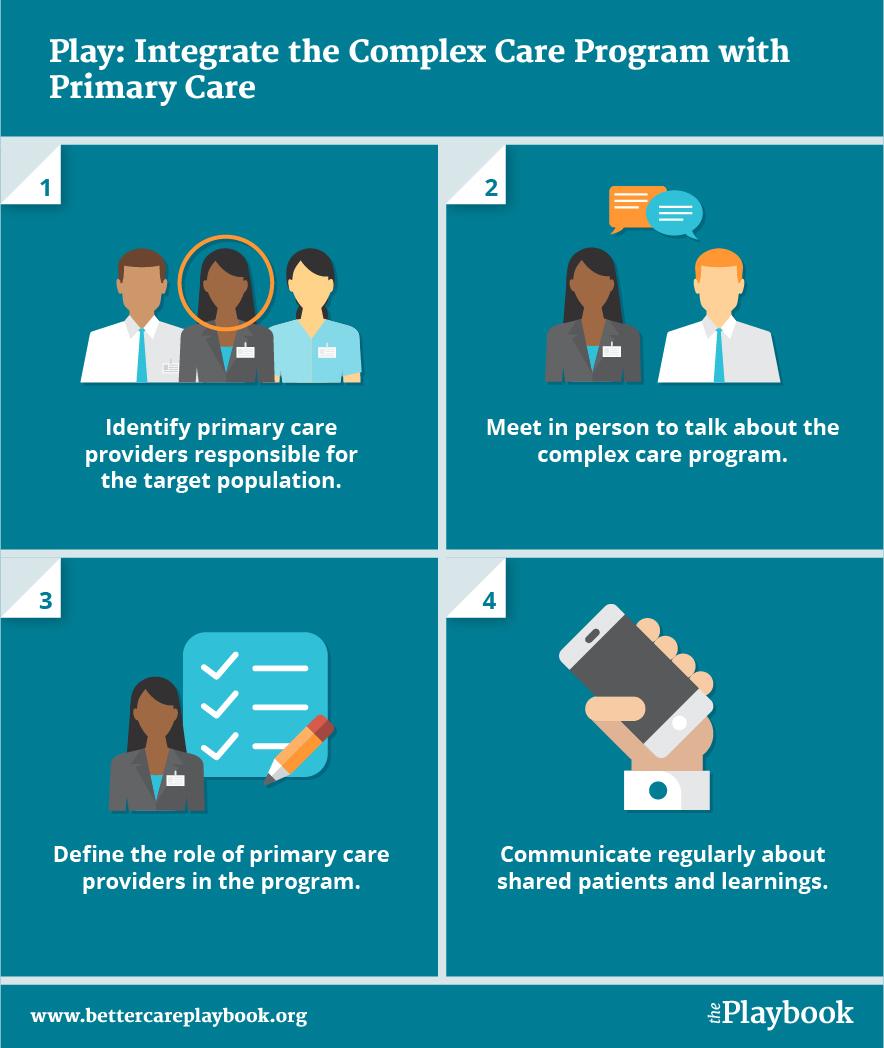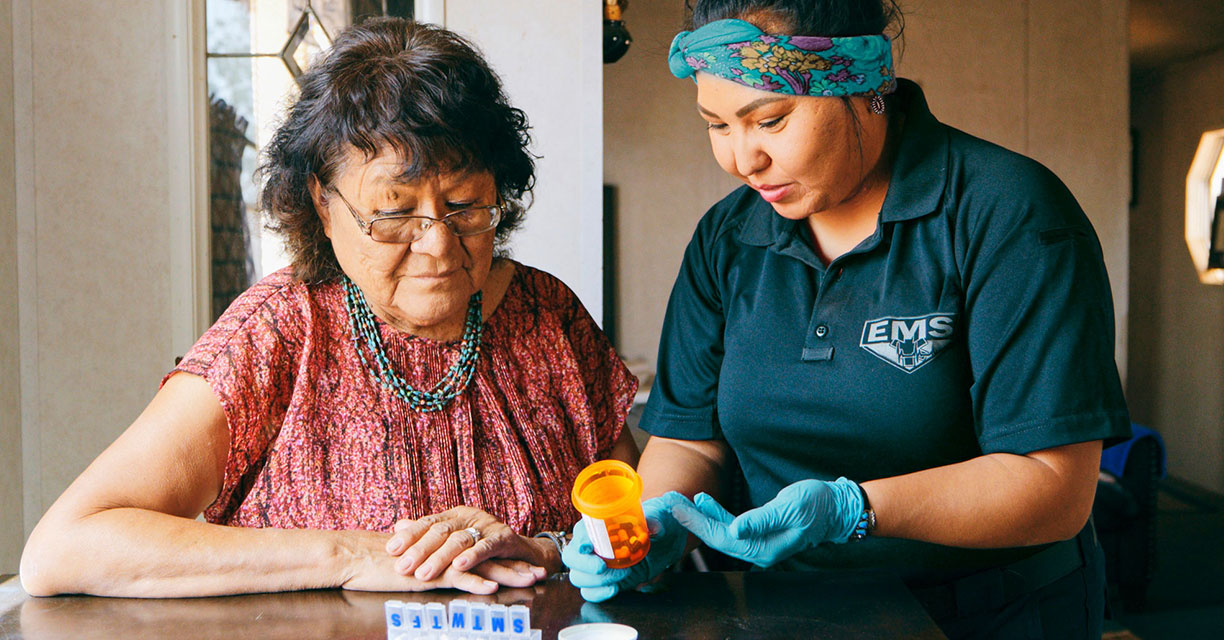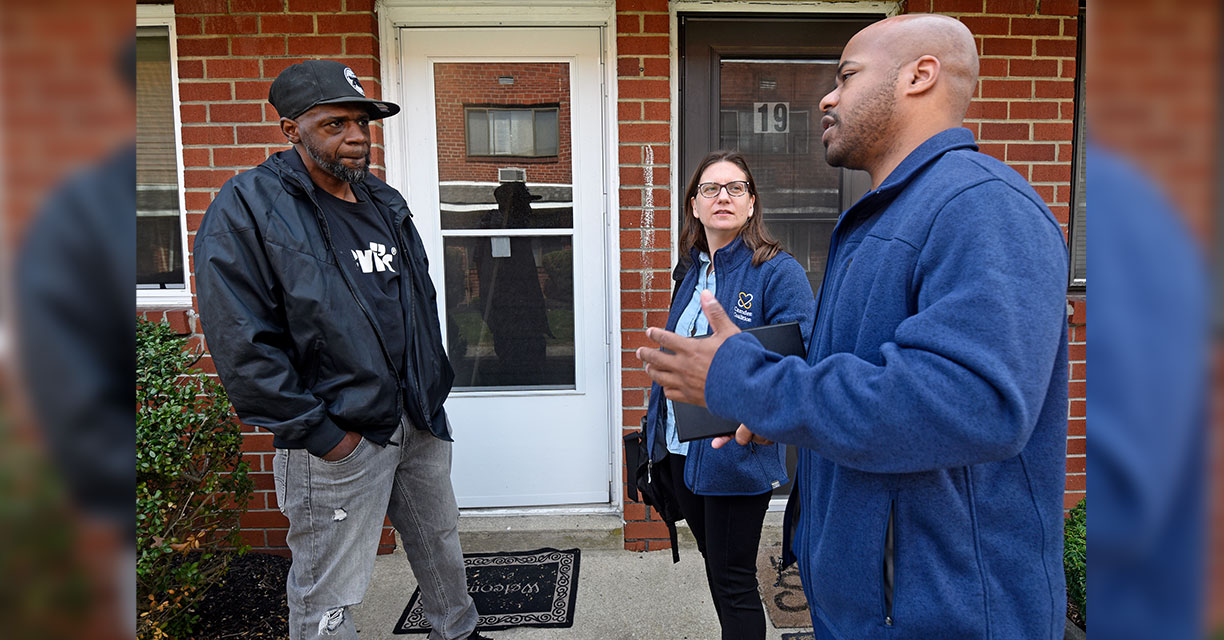Enhanced care models must work with primary care providers to provide seamless care to patients with complex needs. While some programs are based within primary care practices, and others are external to it, in both cases primary care providers and complex care programs must work together as one effective team. How do you engage primary care providers to understand how best to work with them? How do you help them make the right referrals to the program?
The goal of this play is to help develop the necessary partnerships to support your program.


- Identify the primary care providers responsible for the target population.
- Meet in-person to talk about the enhanced care program. Ask the primary care providers about the needs of these patients, and what they think might help.
- Define the role of primary care providers in the complex care program, which may include referrals, coordination during acute care episodes, and regular check-ins to share information and learnings.
- Communicate regularly, including holding case conferences to develop coordinated care plans and sharing learnings through brown-bag presentations.
- Primary care providers are often short on time and resources. Make sure you understand what’s motivating them to participate and ensure the partnership will deliver.
- Make sure primary care providers understand that the program is targeting patients with both complex needs and high health care utilization. Consider co-designing a tool such as a checklist to make referrals simple and seamless.
- Establish a method or process for communicating between the enhanced care model and the primary care practice, e.g., a dedicated phone or co-location of staff.
For More Information
- Learn more about IHI's complex care efforts.
- Read more about strategies to partner with primary care physicians on the Care Redesign Guide.
- The Playbook has further resources to help with this work:
This Play was developed by the Institute for Healthcare Improvement (IHI) based on their work in the Better Health and Lower Costs for People with Complex Needs collaborative, which ran from 2014-2017.



